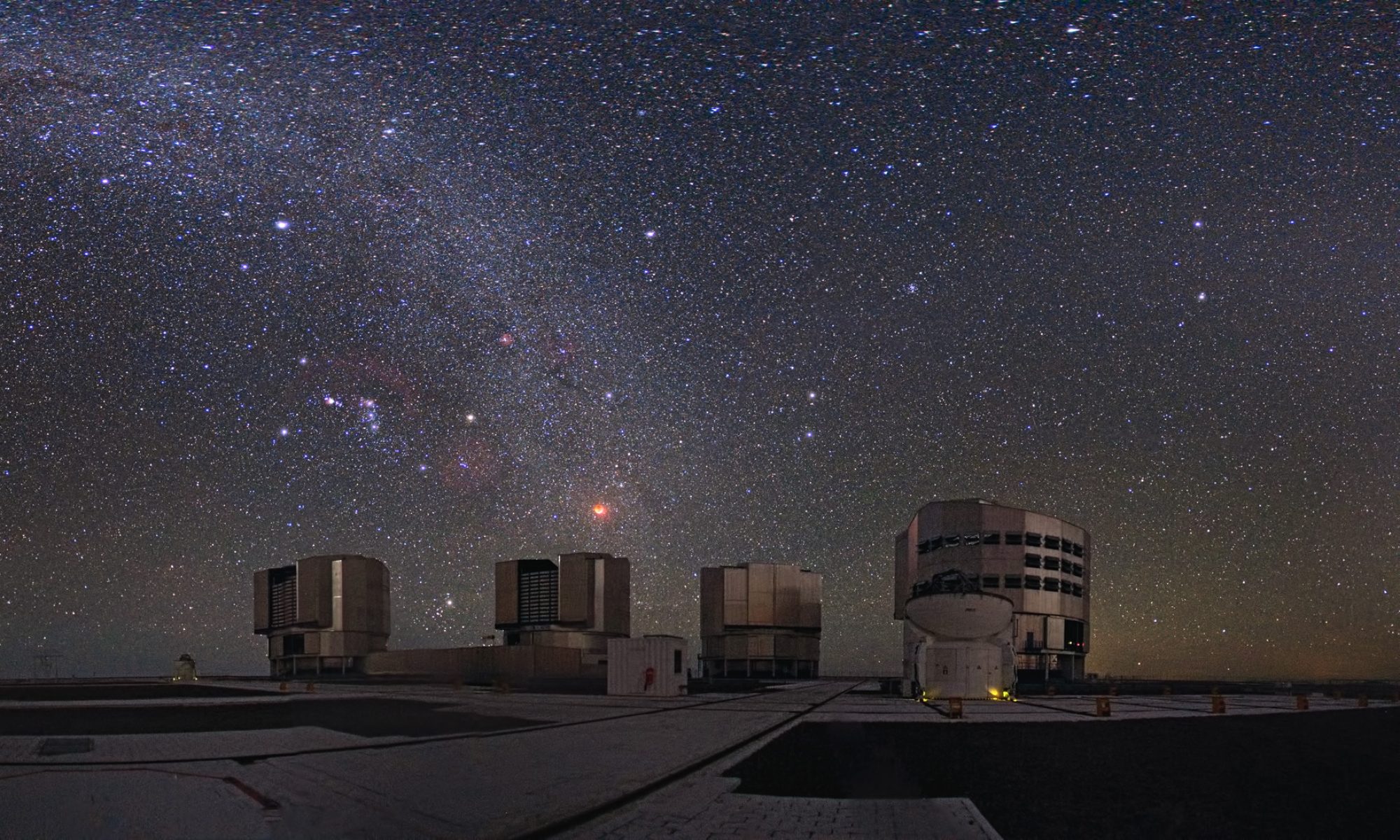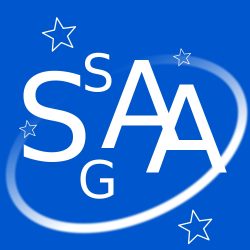|
2024 (first call): 3 awardees |
||
| Helena KUHNLE | ETHZ | James Webb Space Telescope (JWST) characterisation of the atmospheres of gas giant extrasolar planets |
| Romain MEYER | UniGE | The Host Galaxies and Environment of the First Quasars |
| Christina KONSTANTOPOULOU | UniGE | Probing the chemical enrichment of the ISM using a novel dust depletion method on simulated spectra of quasars |
|
2023 (second call): 6 awardees |
||
| Caroline HASLEBACHER | UniBE | Advancing the science strategy for the Europa Imaging System |
| Erik MEIER VALDES | UniBE | Unraveling the nature of the super-Earth 55 Cnc e: Magnetic star-planet interaction and stellar contamination |
| Oliver SCHIB | UniBE | The Formation of the Solar System in the Context of Planetary Population Synthesis |
| Sabina RADUCAN | UniBE | Impact Cratering Studies on Rubble Pile Asteroids |
| Mengyuan XIAO | UniGE | Unveiling the dark side of the Cosmic star-formation history |
| Rui MARQUES CHAVES | UniBE | Ultra-Violet (UV)-bright star-forming galaxies |
|
2023 (first call): 4 awardees |
||
| Jérôme BETRISEY | UniGE | Quantifying the impact of stellar activity on the stellar parameters determined with asteroseismology |
| Nicolas KAUFMANN | UniBE | Coupling Self Colliding Planetesimals to Dust Models for Forming Planets |
| Thibault GAREL | UniGE | The observability of the cosmic web in emission with the BlueMUSE 3D spectrograph |
| Abhjit BENDRE | EPFL | Observational Signatures Galactic Dynamos |
|
2022 (second call): 3 awardees |
||
| Anna LUEBER | UniBE | Rethinking brown dwarf atmosphere research: Retrieve more precise information by combining ground- and space-based data sets |
| Julia ROQUETTE | UniGE | An observational search for environmental feedback on rotation in the Carina Nebulae Complex |
| Kathryn Dawn JONES | UniBE | Observing hot and ultra-hot exoplanets with the James Webb Space Telescope |
|
2022 (first call): 1 awardee |
||
| Franziska ZEUNER | IRSOL | High-precision spectropolarimetric measurements with enhanced accuracy for probing the unresolved solar photospheric magnetic field |
|
2021 (second call): 4 awardees |
||
| Laia BARRUFET | UniGE | Intermediate redshift ULIRGs: bridging the gap between starburst and main sequence galaxies |
| Nicolas LONGEARD | EPFL | Probing the faintest galaxies in the Universe |
| Romain LUCCHESI | EPFL | The first generations of stars in the Local Group |
| Sébastien MARTINET | UNIGE | From the Most Massive Stars to the Most Luminous Supernovae |
|
2021 (first call): 2 awardees |
||
| Chloe FISHER | UniBE | Combining Spectra of Exoplanetary Atmospheres Using Machine Learning |
| Josephine KERUTT | UniGE | Comparing Observations and Simulations of Overdensities around LAEs at the EoR |
|
2020 (second call): 2 awardees |
||
| Gaël BULDGEN | UniGE | Studying the internal structure of red giants with novel asteroseismic techniques |
| Polychronis PATAPIS | ETHZ | Commissioning of the Mid Infrared Instrument on board the James Webb Space Telescope |
|
2020 (first call): 2 awardees |
||
| Andrea GUZMAN MESA | UniBE | What is the information content of JWST transmission spectra? |
| Haruka KUSAKABE | UniGE | Mapping HSC-detected EMPGSs with MUSE |
| 2019 (second call): 4 awardees | ||
| Gianluca CASTIGNANI | EPFL | Galaxy evolution in clusters |
| Leonardo DOS SANTOS | UNIGE | Frontiers of observational techniques to study atmospheric evolution of exoplanets |
| Mahsa SANATI | EPFL | The first stars in the first galaxies: concerning dwarfs with the reionization epoch |
| Rohit SHARMA | FHNW | Search for weak solar flare in an active region |
| 2019 (first call): 4 awardees | ||
| Thibaut GAREL | UniGE | Probing the Epoch of Reionization with Lyman-α in the SPHINX simulation |
| Michele GINOLFI | UniGE | The Baryon Cycle driving Galaxy Evolution |
| Paula SARKIS | UniBE | The Radius Anomaly of Hot Jupiters: Linking Observations and Theory |
| Jennifer SCHOBER | EPFL | Chiral MHD & the origin of cosmic magnetism |
| 2018 (second call): 4 awardees | ||
| Martin JUTZI | UniBE | Japanese Hayabusa 2 space mission: exploration of the C-type asteroid Ryugu |
| Carmela LARDO | EPFL | The Chemistry of the Multiple Populations |
| Julia Victoria SEIDEL | UniGE | Revealing thermospheres of exoplanets via atmospheric retrieval |
| Marko SESTOVIC | UniBE | First estimate for the true occurrence rate for planets around ultracool stars, including for earth-like rocky planets such as TRAPPIST-1 |
| 2018 (first call): 2 awardees | ||
| Baptiste LAVIE | UniGE | Atmospheric escape from the closest Super-Earth |
| Shang-Min TSAI | UniBE | Atmospheric Chemistry and Dynamics in Exoplanets |
| 2017 (second call): 3 awardees | ||
| Maria Nikolayevna DROZDOVSKAYA | UniBE | Roots of Life — Astrobiological Imprints in Cimet and Planet-Forming Material |
| Loïc HAUSAMMANN | EPFL | High Resolution Smoothed Particle Hydrodynamics of Dwarf Galaxies Simulations Including Gravity |
| Lia SARTORI | ETHZ | A universal model for active galactic nuclei variability |
| 2017 (first call): 4 awardees | ||
| Jean COUPON | UniGE | The environment of X-ray selected AGNs up to z ∼ 1.5 |
| Cyril GEORGY | UniGE | Next generation models of massive stars |
| Anna WEIGEL | ETHZ | Phenomenological models of AGN |
| Johanna WOO | ETHZ | Galaxy quenching |
| 2016 (second call): 2 awardees | ||
| Stéphane de BARROS | UniGE | Pave the way to the James Webb Space Telescope era: multi-wavelength analysis of high-redshift galaxies to understand cosmic reionization and galaxy mass assembly |
| Tim LICHTENBERG | ETHZ | Volatile degassing from terrestrial planet precursors |
| 2016 (first call): 3 awardees | ||
| David HARVEY | EPFL | Observing the dynamics of dark matter with strong and weak gravitational lensing |
| Joao Manuel MENDOÇA | UniBE | THOR: A New and Flexible 3D Dynamical Model to Explore Planetary Atmospheres |
| Kyuseok OH | ETHZ | The BAT AGN Spectroscopic Survey |
| 2015 (second call): 4 awardees | ||
| Claudia CICONE | ALMA studies of molecular gas in galaxies | |
| Tassos FRAGOS | The origin of stellar-mass black hole spin | |
| Michael KOSS | AGN host galaxy studies using hard X-rays | |
| Matej MALIK | HELIOS: A new open-source radiative transfer code | |
| 2015 (first call): 3 awardees | ||
| Caroline DORN | Characterizing rocky exoplanets: interior structure and tectonic regimes | |
| Daniel KITZMANN | The unstable CO2 feedback cycle on ocean planets | |
| Kimihiko NAKAJIMA | Galaxy Evolution and Cosmic Reionization Revealed by NIR Spectroscopy of Distant Galaxies | |
| 2014 (second call): 5 awardees | ||
| Julian ADAMEK | Relativistic effects in the nonlinear evolution of cosmic structure | |
| Sylvia EKSTRÖM | UniGE | Stellar populations, from theory to observation |
| Elena GAVAGNIN | Star cluster formation through merger of sub-clusters | |
| Matthew NICHOLS | Studying the evolution of dwarf galaxies as they become satellites | |
| Julian VENTURINI | Atmospheric enrichment during planet formation: recomputing the core-accretion model with more realistic planet compositions | |
| 2014 (first call): 2 awardees | ||
| Antonio CAVA | SHARDS and WINGS surveys: benchmarks for evolutionary studies of galaxies and galaxy clusters | |
| Aline VIDOTTO | UniGE | The impact of stellar winds on planets: characterisation of the interplanetary medium |
| 2013 (second call): 3 awardees | ||
| Martin JUTZI | Japanese Hayabusa 2 space mission: study of the effects of a small Carry-on Impactor | |
| Ulysse MARBOEUF | Gas trapping in amorphous water ice | |
| Anaïs RASSAT | EPFL | Cosmology with the clustering statistics and number counts of galaxy-scale moderate lensing |
| 2013 (first call): 3 awardees | ||
| Anahi GRANADA | UniGE | Rapidly Rotating Stellar Populations |
| José GROH | UniGE | Massive stars through cosmic times |
| Anne VERHAMME | UniGE | Lyman alpha radiation transfer in hydrodynamical simulations of galaxy formation and evolution |

